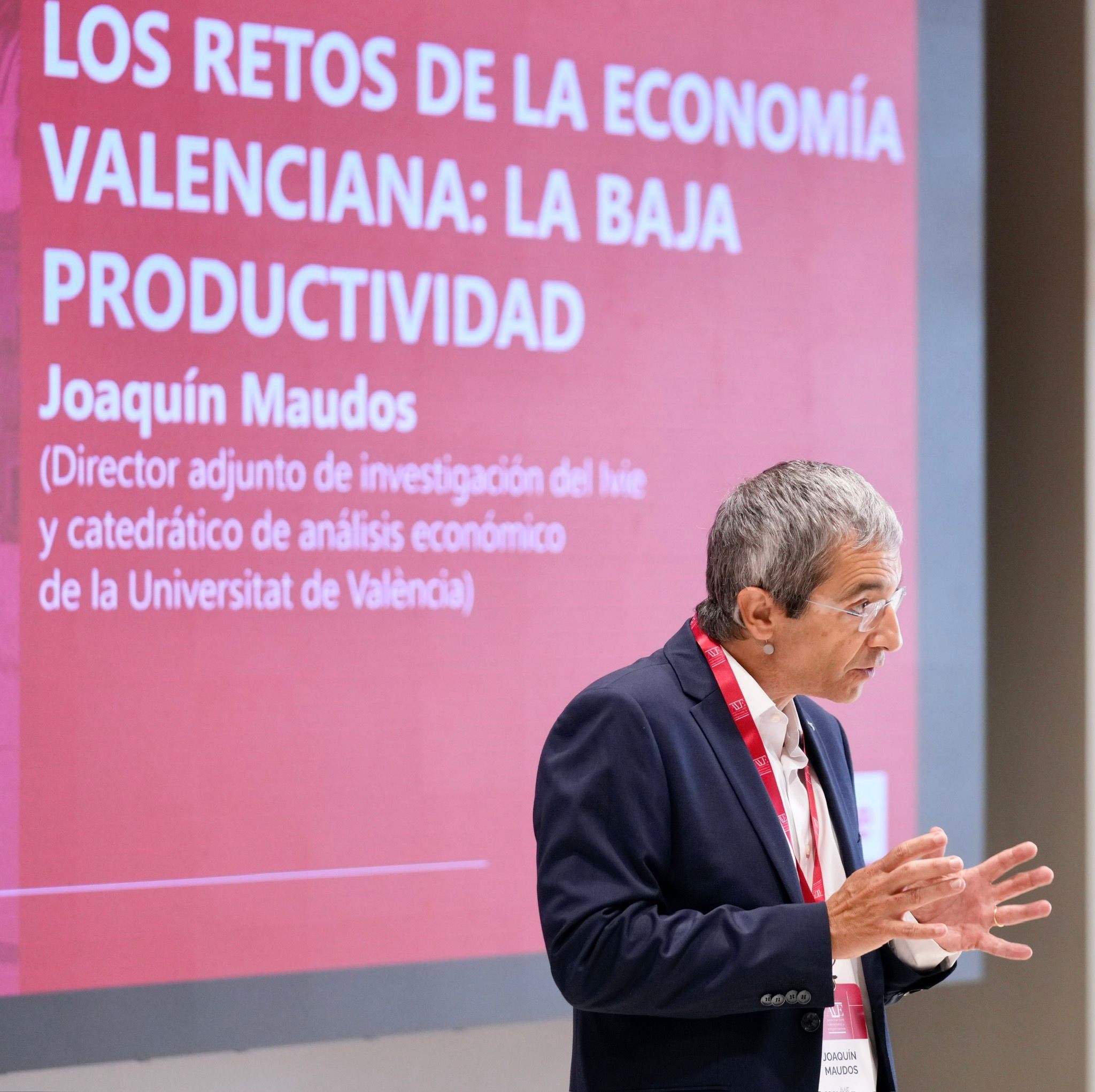Esta web utiliza cookies para que podamos ofrecerte la mejor experiencia de usuario posible. La información de las cookies se almacena en tu navegador y realiza funciones tales como reconocerte cuando vuelves a nuestra web o ayudar a nuestro equipo a comprender qué secciones de la web encuentras más interesantes y útiles.

Ivie and AVE examine the roots of low productivity in the Valencian Community
Ivie Research Deputy Director, Joaquín Maudos, identified the key indicators that help explain the gap between the Valencian Community’s economy and Spain’s national average in terms of per capita income
In a joint effort to promote territorial cohesion and economic development in the Valencian Community, the Valencian Association of Entrepreneurs (AVE) and Ivie held a working session at the Sabadell Hub Empresa to analyze the current situation of the region’s economy. The event brought together key figures from the Valencian economic and business spheres.
Cándido Zorio, Director of Banco Sabadell’s Eastern Territorial Business Network, was in charge of giving the welcoming talk, followed by Agnès Noguera, AVE Vice President, who emphasized the importance of these forums for bridging economic data with real-world business experience. She noted that these meetings allow to learn not only about the indicators, but also about the opinions, best practices, and proposals that arise from the debate with business leaders.
Joaquín Maudos, Ivie Research Deputy Director, highlighted the factors that explain the low productivity of the Valencian economy compared to the national average, a structural issue that hinders its growth and convergence with more prosperous regions. He also pointed out that the gap in per capita income between the Valencian economy and Spain has widened from 12.2% in 2019 to 14.4% in 2024—causing the region to drop from 10th to 12th place in Spain’s regional ranking. Maudos stressed that the divergence goes back even further because the Valencian Community is closer to the per capita income of poorer regions than to that of wealthier ones.
He also explained that its weakness stems from the low productivity of a large part of the productive fabric and the public sector’s inability to support it due to a lack of resources. The Valencian Community lags far behind in the regional productivity ranking, namely 13th out of 17. Maudos argued that, in order to converge with the more prosperous regions, it is necessary to increase productivity, which requires: a) shifting specialization towards more productive sectors (which carry very little weight in the Valencian Community); and b) improving the quality of the factors used, which requires greater investment in ICT capital, intangible capital (which is most closely related to digitization), and human capital.
The session concluded with an open debate, in which business leaders and experts exchanged ideas and proposals for strengthening the regional economy through a joint, sustained strategy.
Maudos reminded attendees that improving productivity requires coordinated action between businesses and public administrations. While businesses are the protagonists of investment efforts and changes in productive specialization, the public administration must create favorable conditions for businesses to make their decisions, facilitating business and guaranteeing the infrastructure and public services that are necessary inputs in the production process and require corrected underfunding.


